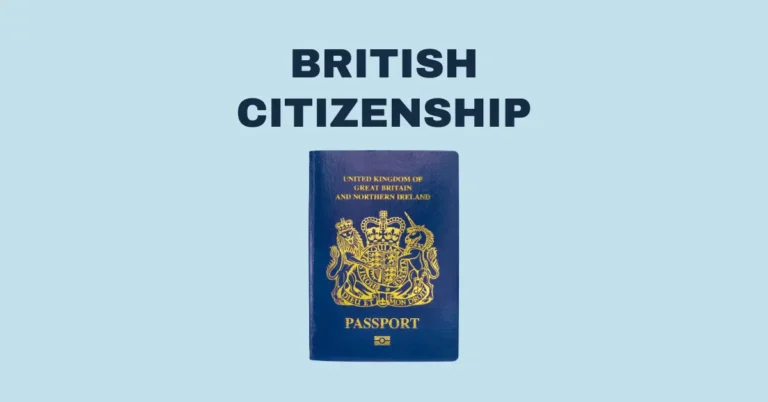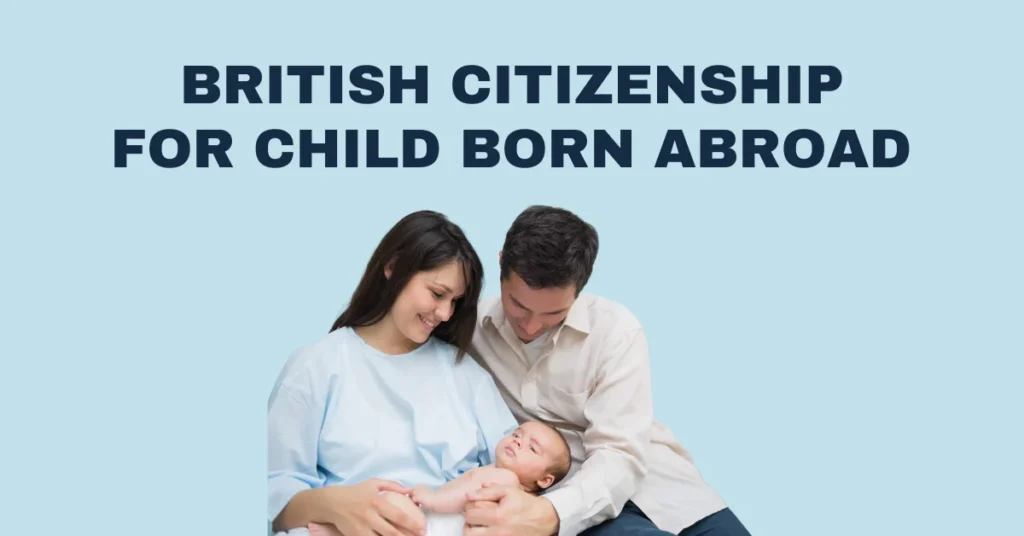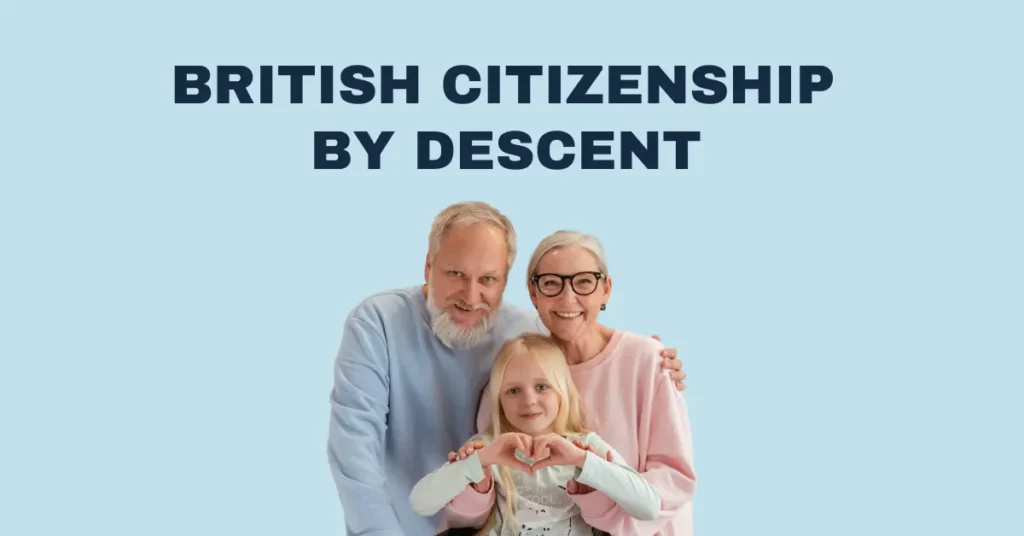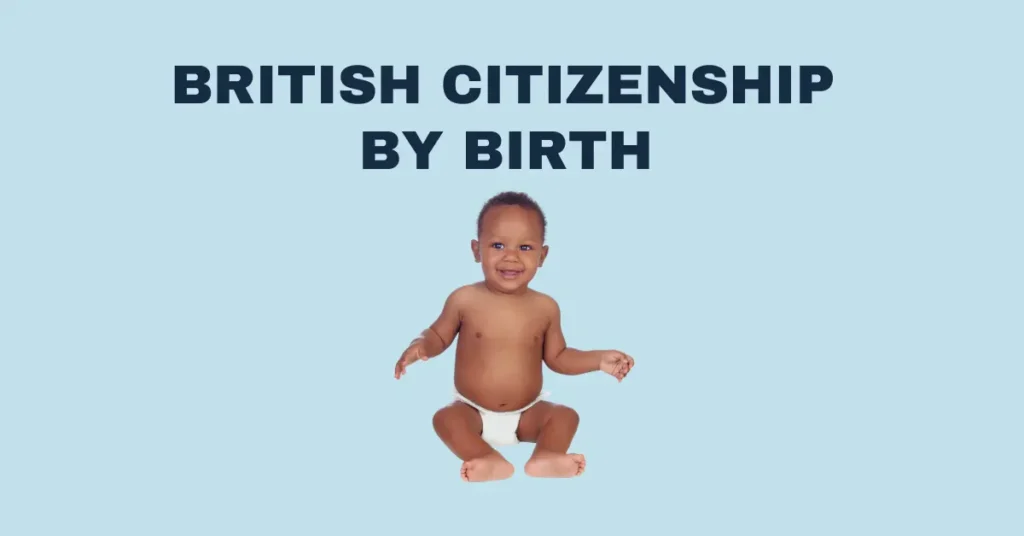What is British Citizenship?
British Citizenship encompasses a profound right to remain indefinitely in the UK, empowering you to live, work, study, and access benefits, including free NHS services. It grants identical privileges as a native Briton.
Acquiring British citizenship means gaining a British passport, liberating you from immigration constraints for seamless travel to and from the UK, exempt from visa requirements.
Various routes exist to obtain citizenship—through birth, descent, marriage, or naturalisation. Unlike Indefinite Leave to Remain (ILR), which can lapse after a continuous absence of 2 years, citizenship remains steadfast even after extended periods abroad. Although rare, citizenship can be revoked in extreme cases, typically involving a severe threat to the nation.
Criteria for Acquiring British Citizenship
According to the British Nationality Act, specific conditions must be fulfilled to attain UK citizenship through naturalisation. This process, granting citizenship to individuals from other nations, involves a meticulous assessment against these outlined prerequisites. The specific requirements depend on the chosen pathway and encompass:
- Attainment of at least 18 years of age.
- Fulfilment of the required residency period in the UK, varying based on the chosen citizenship route, typically spanning 3 to 5 years.
- Establishment of a residence duration of at least 12 months post the acquisition of settlement status. This condition exempts those applying based on marriage, civil partnership, or relationships with British nationals.
- Adherence to continuous residence prerequisites.
- Satisfactory compliance with language proficiency requisites.
- Demonstration of mental capacity to comprehend and consent to the citizenship undertaking.
- Successful completion of the Life in the UK test.
- Genuine intent to sustain residency in the UK upon acquiring citizenship.
- Demonstration of good character, devoid of any actions breaching immigration regulations.
- Absence of violations against immigration rules.
These stipulations are fundamental in the assessment process, ensuring an informed and committed transition to British citizenship.
Acquiring UK Citizenship: Pathways and Criteria
Securing British citizenship is contingent upon your unique situation and eligibility. The primary routes to obtain UK citizenship include:
- British Citizenship through Naturalisation
- This route involves applying for citizenship if you’re not born in the UK or don’t have automatic citizenship. Requirements typically include:
- Meeting residency duration criteria (usually 3 to 5 years).
- Demonstrating language proficiency and knowledge of life in the UK.
- Being of good character and meeting other specified criteria.
- This route involves applying for citizenship if you’re not born in the UK or don’t have automatic citizenship. Requirements typically include:
- British Citizenship by Descent
- Citizenship by descent allows individuals born outside the UK to apply if their parent/s or grandparent/s held British citizenship. Specifics include:
- Limited to one generation for children born overseas.
- Eligibility criteria based on the parent’s citizenship status at the time of the applicant’s birth.
- Citizenship by descent allows individuals born outside the UK to apply if their parent/s or grandparent/s held British citizenship. Specifics include:
- British Citizenship by Birth
- Not all individuals born in the UK automatically become citizens. Criteria for citizenship by birth depend on:
- Birthplace and date (pre or post 1st January 1983).
- Parental citizenship or settled status at the time of the individual’s birth.
- Not all individuals born in the UK automatically become citizens. Criteria for citizenship by birth depend on:
- British Citizenship through Marriage
- This pathway allows spouses or civil partners of British citizens to apply for citizenship after meeting certain requirements:
- Residency duration of at least 3 years in the UK.
- Meeting absence requirements (no more than 270 days abroad in the 3-year period, and 90 days in the last year before application).
- Proving a genuine relationship and commitment to living in the UK.
- This pathway allows spouses or civil partners of British citizens to apply for citizenship after meeting certain requirements:
- Transition from Settled Status to UK Citizenship
- Individuals with settled status (such as Indefinite Leave to Remain or EU Settlement Scheme) can progress to citizenship by:
- Accumulating at least 5 years of residence in the UK.
- Holding the specified settled status for a minimum duration.
- Adhering to absence limitations during the qualifying period.
- Individuals with settled status (such as Indefinite Leave to Remain or EU Settlement Scheme) can progress to citizenship by:
These distinct pathways cater to varied circumstances, reflecting the depth and complexity of requirements to obtain UK citizenship.
Acquiring British Citizenship through Naturalisation
Securing British citizenship via naturalisation primarily occurs through two distinct paths:
- For Individuals with Indefinite Leave to Remain or EU Settled Status
- This pathway transitions individuals who possess Indefinite Leave to Remain or EU Settled Status towards British citizenship.
- Refer to the section ‘Progression from Settled Status to British Citizenship’ for further details.
- For Individuals Married to or in a Civil Partnership with a British Citizen
- This route facilitates citizenship for individuals in marital or civil partnerships with British citizens.
- Explore the segment ‘Partnership Routes to British Citizenship’ below for more information.
These avenues offer specific pathways towards naturalisation, each tailored to particular circumstances and eligibility criteria.
British citizenship and descent
In the realm of British citizenship, ‘citizenship by descent’ presents an opportunity for those born abroad to seek British citizenship if their parent/s or grandparent/s held this distinction. This lineage typically extends one generation to children born beyond the UK’s borders. Unlike individuals endowed with British citizenship ‘other than by descent’ due to birth within the UK, those with ‘citizenship by descent’ cannot pass this privilege to their progeny.
Qualifying as a British citizen by descent could occur automatically if you were born outside the UK, bestowed by a parent who held British citizenship at your birth. This lineage might manifest from a parent’s birth or adoption in the UK, independent acquisition of citizenship, or service as a Crown servant.
Should automatic UK citizenship by descent not apply to your circumstance, the avenue of registration for citizenship by descent could offer an alternative path.
UK citizenship and birth
British citizenship through birth isn’t automatic for everyone born in the UK. Whether you’re considered a British citizen by birth hinges on your birthplace and date. Those born in the UK before January 1st, 1983, typically qualify as British citizens by birth. For those born after this date within the UK, eligibility as a British citizen by birth usually requires at least one parent to hold British citizenship or settled status in the UK at the time of birth.
Partnership Routes to British Citizenship
Eligibility for UK citizenship through marriage or civil partnership with a British citizen necessitates a minimum residence of 3 years in the UK before applying. The regulations stipulate that within this 3-year period, you should not have been absent from the UK for more than a total of 270 days (termed the absence requirement). This criterion aims to ensure applicants haven’t stayed outside the UK excessively during their residency, bolstering the authenticity of their cases.
Furthermore, in the 12 months leading up to the citizenship application, you must not have exceeded 90 days outside the UK. This provision ensures a sustained commitment to residence in the UK and reinforces the legitimacy of the citizenship application.
Progressing from Settled Status to British Citizenship
Transitioning to British citizenship via naturalisation necessitates a minimum residency of 5 years within the UK and maintaining one of the following statuses for at least 1 year:
- Indefinite Leave to Remain (ILR) in the UK
- Settled Status under the EU Settlement Scheme
- Indefinite Leave to Enter the UK
Specific restrictions apply concerning the duration of time spent outside the UK:
- Not exceeding 450 days in the preceding 5-year period before applying for British citizenship.
- Limiting absences to no more than 90 days in the year immediately preceding the British citizenship application.
This route, with its stringent residency and absence criteria, provides a pivotal pathway from settled status to attaining British citizenship.
What Documents Are Required for British Citizenship Application?
When applying for British citizenship, you’ll need to furnish various types of evidence, which may include but aren’t limited to the following:
- Proof of Identity: For instance, your passport or national identity card.
- Confirmation of Permanent Residency: Such as a Home Office letter or Biometric Residence Permit signifying your permission to stay in the UK indefinitely.
- Evidence of Relationship with a British National: Documentation substantiating your familial ties to a British national.
- Substantiation of Genuine Relationship: Documents supporting the authenticity and continuity of your relationship with a British national.
- Residency Proof: Records showcasing compliance with residency requirements, typically 3 or 5 years in the UK before application and 12 months post obtaining settlement. This can include a detailed travel history obtained from the Home Office, demonstrating entries and exits from the country.
- Verification of Absence Compliance: Similar travel history records to demonstrate adherence to absence requirements.
- Life in the UK Test Certification: Proof of successfully passing the Life in the UK Test, a mandatory step in the citizenship process.
- Language Proficiency Evidence: Meeting language criteria, which might include:
- An accredited Home Office English qualification at level B1 CEFR or higher.
- UK degree certificates or certificates from English-speaking or non-majority English-speaking countries, along with supporting documents like Academic Qualification Level Statements (AQUALS) and English Language Proficiency Statements (ELPS).
Erroneous document submission can delay or jeopardise your UK citizenship application. For tailored advice, reach out to our immigration solicitors at +44 (0) 333 577 0034.
Applying for British Citizenship: Step-by-Step Guide
The process to attain British citizenship varies based on your eligibility route. However, the general steps for the application procedure are:
- Completion of the British Citizenship Application Form: The specific form required hinges on your eligibility route. Applying online via the Home Office website is an option.
- Payment of the UK Citizenship Application Fee: The fee amount differs according to the chosen route for citizenship.
- Appointment at a UKVCAS Service Point for Biometric Data: Schedule an appointment to provide your biometric information.
- Document Submission to UKVI: Upload your pertinent documents through the UK Visa and Immigration (UKVI) system.
- Referee Details: Depending on your citizenship route, you may need to supply details of two referees known personally for a minimum of three years. One referee must be a British citizen or a person over 25 with personal acquaintance, while the other should hold professional standing (e.g., lawyer, police officer, accountant).
- Addressing Home Office Queries: If the Home Office requires additional information, they will reach out to you. Timely responses are crucial to prevent rejection of your application.
- Citizenship Ceremony Invitation: Upon approval of your citizenship application, you’ll receive an invitation to attend a citizenship ceremony in your vicinity.
Responding promptly to any queries from the Home Office and following these steps diligently can ensure a smooth progression toward acquiring British citizenship.
Citizenship Assessments for British Nationality
The assessments for British citizenship encompass two main components:
Life in the UK Test
- This examination gauges your comprehension of British history and culture, a requisite to demonstrate a broad understanding of the country. The test is administered at authorised test centres. Online resources and specific books are available to aid in preparation for the assessment.
- Exemptions from taking the Life in the UK test may apply if you are under 18 or over 65, or if you have a physical or mental condition.
English Language Proficiency
- Meeting the English language requirements can be accomplished by either of the following:
- Attaining a CEFR English qualification at B1, B2, C1, or C2 level.
- Possessing a degree taught or researched in English.
- Similar to the Life in the UK test, exemptions from the English language requirement might be applicable if you are under 18 or over 65, or if you have certain physical or mental conditions.
Moreover, citizens from specific countries—such as Antigua and Barbuda, Australia, Canada, the USA, and others—are exempt from meeting the English language requirement. This exemption applies to nationals from selected English-speaking nations.
Ceremony for UK citizenship
The UK Citizenship Ceremony is usually a two-hour event, and participants are requested to dress formally, refraining from wearing jeans, shorts, or trainers.
The central segment of the ceremony involves the administration of either the Oath or the Affirmation of allegiance to Her Majesty the Queen and the Pledge of loyalty to the United Kingdom. By taking this pledge, individuals commit to upholding the rights, freedoms, and laws of the UK.
These ceremonies often include the presence of a local dignitary, such as the local mayor, who might invite you to partake in a formal photograph session. Upon completion of the UK Citizenship Ceremony, you officially gain British citizenship, enabling you to proceed with applying for a British passport.
Awaiting Your UK Citizenship Decision
The process for your British citizenship decision typically spans around 6 months, although straightforward cases might be resolved in a swifter 1 to 3 months. Complex scenarios or missing information may prolong the decision-making beyond the 6-month mark.
During this waiting period, you maintain the liberty to travel in and out of the country under your existing immigration terms. However, it’s imperative to promptly inform the Home Office of any alterations in your circumstances, such as a change of address, marriage, or legal matters.
To update the Home Office, communicate via email at nationalityenquiries@homeoffice.gov.uk. For inquiries or updates on your application status, contact the Home Office helpline at 0300 790 6268.
Is it possible to contest a denied British citizenship application?
Challenging a rejected UK citizenship application is permissible if your refusal letter specifies your right to appeal. However, not all applicants possess this appeal right. In the unfortunate event of a Home Office refusal, rest assured that alternative options usually remain accessible. Understanding the precise grounds for your application’s denial, as outlined in your refusal letter, is crucial. Seeking guidance from an immigration solicitor with expertise in citizenship application denials is advisable. If your citizenship bid faces rejection, don’t hesitate to connect with our supportive immigration solicitors at +44 (0) 333 577 0034 at your earliest convenience.











































